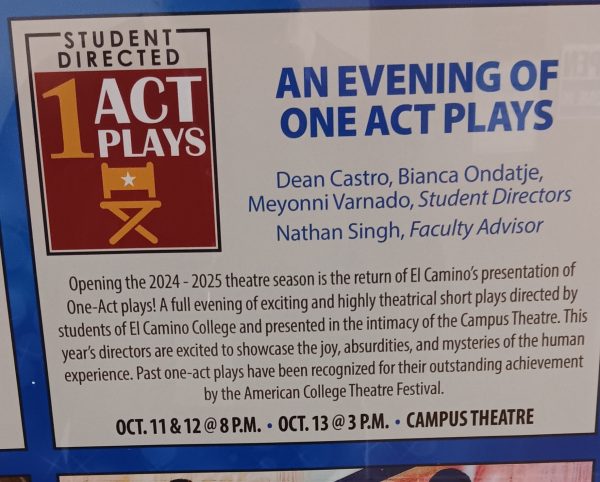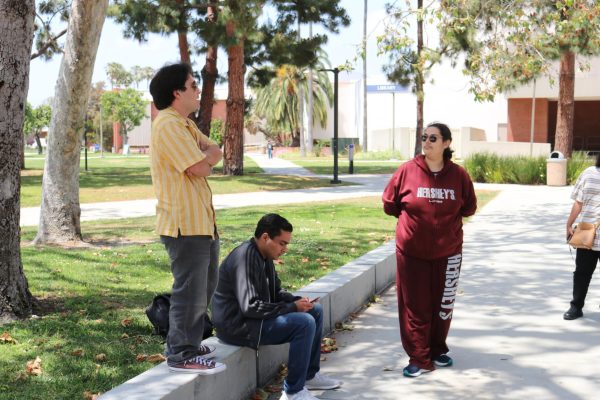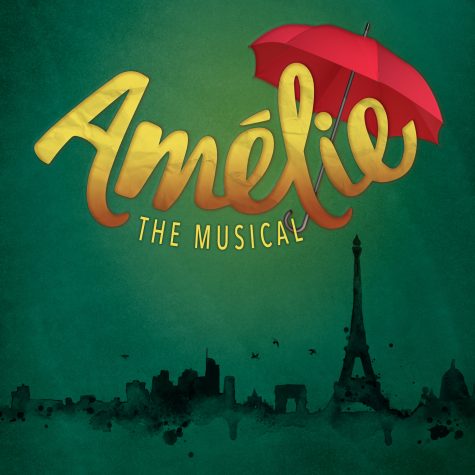Blues, bop swing with jazz band
Sliding the trombones and pressing the trumpets’ valves, musicians are playing nostalgic sounds of blues, bop and Latin jazz in the practice rooms at Marsee Auditorium when the jazz band practices Tuesdays and Thursdays.
Not quite an ordinary class, the jazz band is a group of 20 young men, aged 18 to 25, who are learning to play different styles of jazz under the instruction of Kurt Festinger.
“I hardly knew how to read music at all when I started and it has been an interesting challenge for me,” bass guitarist David Hofland said.
One of the coolest things about this class is that students are not graded on what they do, but on how dedicated they are to their music, trombonist Silverio Rojas said.
“This is one of the few classes where everyone in it can improve on what they already have; so if you take it seriously, then Kurt will take you seriously,” Rojas said.
Many of the students, Hofland said, are seriously pursuing careers in music; by continuously taking the class, they have a chance to utilize the resources available.
“Some of the students are doing what is called ‘applied music,’ which will get them associate of arts degrees in music performance,” Hofland said.
Although much of the material they play is that of legendary musicians such as Sammy Nestico, Duke Ellington, and Count Basie, Holand said that some of the members try writing their own.
“A few of us work on things outside the class and the horn players compose a few solos, but mostly everything is read from music charts,” Hofland said.
Hofland said that he plays a variety of instruments such as Aboriginal flutes, drums and percussion and does a lot of recording at home.
“My projects are mainly for meditation or to create different moods, but they may not be soothing to the western ear because of the different scales,” he said. “I kind of do my own thing.”
Band member Lemar Guillory, who plays tenor trombone, said he thinks jazz is an art form that has been forgotten, particularly among the younger generation.
“A lot of young African American students don’t realize that it is part of their heritage,” he said.
In addition, Guillory said that in the last few years, certain styles of jazz are finding their way back into the mainstream and are becoming increasingly popular in today’s hip-hop music.
“A lot of artists are sampling off of it and one good example is the group Outkast, which had several Grammy nominations for album of the year,” Guillory said.
“Maybe young people will start to listen more and can take something from it.”
However, Rojas said that the influence of jazz on the youth culture is not enough because it has lost its popularity over time.
“With all the budget cutbacks, many schools are cutting out music classes and that is making it even more difficult,” Rojas said.
Furthermore, Hofland said he notices other music students are starting to drop by just to listen to the band during practice.
“The turnout for our concerts is not generally that good, maybe fewer than one hundred people and most of them are family,” he said.
Aside from the band’s campus performances, it competes against other college bands in the Fullerton Jazz Festival.
“Unfortunately, we did not compete this year because our spring semester started late and since other colleges had started one month before us, we did not get enough practice time in before the festival which was in March,” Guillory said.
But determined not to skip a beat, Guillory said that he and a few other band members are having the pleasure of experimenting professionally in front of live audiences.
“Both myself and bass trombone player Roadell Sudduth will be performing around Father’s Day in June at the Hollywood Bowl Jazz Festival,” he said.
Rojas has recorded with different groups and is currently on a four-day tour aboard Carnival’s cruise ship.
“I’m also in the EC choir and we’ll be performing on the ship and on land in San Diego,” Rojas said.
As for the future of the jazz band, Guilllory said he is hoping the band will get a chance to perform more frequently, but for now, students should be on the lookout for its upcoming performance in May.
“Right now we only give two or three performances from September to May, which are generally free,” he said.






